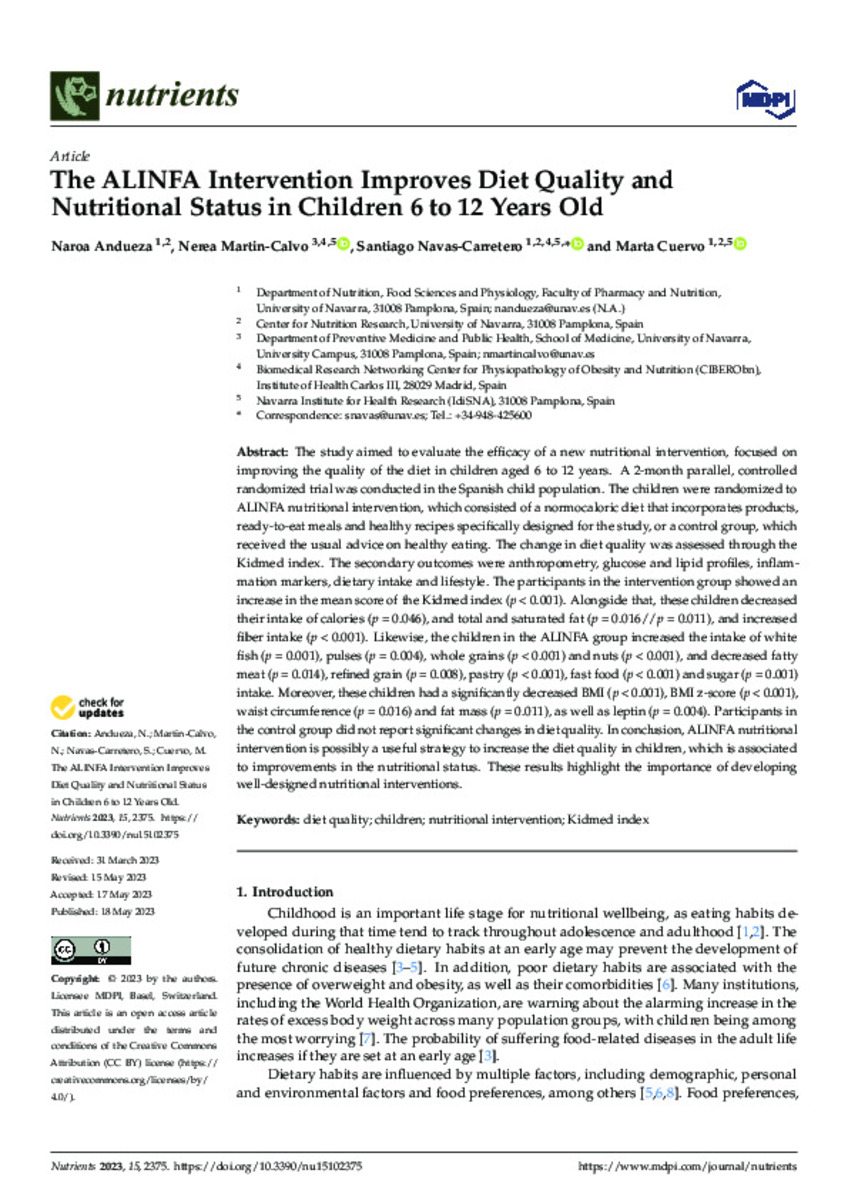The ALINFA Intervention Improves Diet Quality and Nutritional Status in Children 6 to 12 Years Old
Keywords:
Kidmed index
Children
Diet quality
Nutritional intervention
Note:
This article is an open access article distributed under the terms and conditions of the Creative Commons Attribution
Citation:
Andueza-Pacheo, N. (Naroa); Martin-Calvo, N. (Nerea); Navas-Carretero, S. (Santiago); et al. "The ALINFA Intervention Improves Diet Quality and Nutritional Status in Children 6 to 12 Years Old". Nutrients. 15 (10), 2023, 2375
Statistics and impact
0 citas en

0 citas en

Items in Dadun are protected by copyright, with all rights reserved, unless otherwise indicated.







